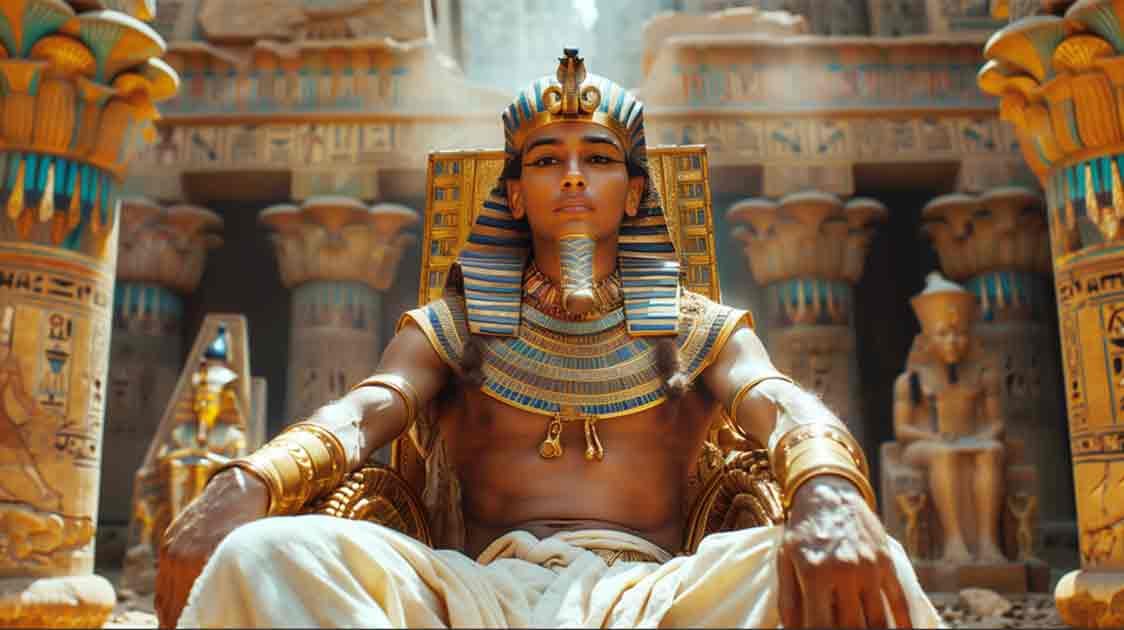How Freedom is Won, and How Freedom is Lost
Evil starts as thin as a spider's web and, unchecked, becomes thick as rope
Exodus 4v21
The Lord said to Moses, “When you return to Egypt, see that you perform before Pharaoh all the wonders I have given you the power to do. But I will harden his heart so that he will not let the people go.
The Bible is full of problems. The key to wisdom is to hammer away at the problem until it opens up to you.
The problem in this verse I read this morning is obvious.
If God hardened Pharaoh’s heart, where was Pharaoh’s freedom?
Either the Egyptian king had the freedom to let Israel go, or he did not.
If Pharaoh had a choice, then Pharaoh hardened his own heart.
But if God hardened Pharaoh’s heart - as the text says - then what choice did Pharaoh have? And how could God punish Pharaoh for something Pharaoh was unable to control?
When you continue to read the book of Exodus as it details the 10 plagues God sent upon Egypt, it is interesting to note that after each of the first five plagues it says that Pharaoh hardened his own heart.
It is only from the sixth plague onwards that Pharaoh’s hard-heart is attributed to God.
Rabi Jonathan Sacks suggests that the hardening of Pharaoh’s heart in the last five plagues was a form of punishment for Pharaoh hardening his own heart after each of the first five plagues.
When Pharaoh continually refused to repent, God eventually withheld repentance from him altogether.
This is such a profound thing to observe.
At first the evil impulse is as thin as a spider’s web. But, in the end, it is as thick as hawser.
Or to put it another way; evil arrives as a migrant, stays as a guest and becomes a master.
Evil has two sides to it. The first side of evil is what it does to the outside world. Pharaoh refused to let the slaves go.
But the second side to evil is what it does to the evildoer. In repeatedly refusing to free the slaves, Pharaoh became evil’s slave.
Eventually, despite the fact that Egypt was being completely ruined all around him, Pharaoh simply could not relent.
Pharaoh is a tragic figure. His obsession might have had rational beginnings, but it took hold of him to the point that he not only ruined the people around him, he ruined himself.
It’s important to realise that freedom can be won and freedom can be lost. And the process is gradual.
Unless the will to do what is right is exercised, it eventually atrophies and dies. At that point the will to do right is completely gone. And a person will literally self-destruct in violation of all reason and sense.
Pharaoh was born free, but became a slave by his repeated refusal to do right.
Moses, on the other hand, was born a slave but became free through repeated obedience to the voice of God.
The greatest challenge in life is to daily allow God’s will to challenge our own. It’s the path to freedom, and it is the cure for hardness of heart.
You can get my daily Bible thought every morning as a paid subscriber.
When you become a paid subscribe to The James Macpherson Report - giving you full access to every news article - check the box to also receive Your Daily Reality Check and you’ll have my Bible thought in your inbox every morning to get your day off on the right foot.




Good reflection and insight into human behaviour James. I've long thought about the nature of clay and wax whilst reading this passage. In the presence of heat clay hardens and wax melts. It is in the nature of the heart as to whether it will harden or soften when it experiences the presence of God.
Love this perspective